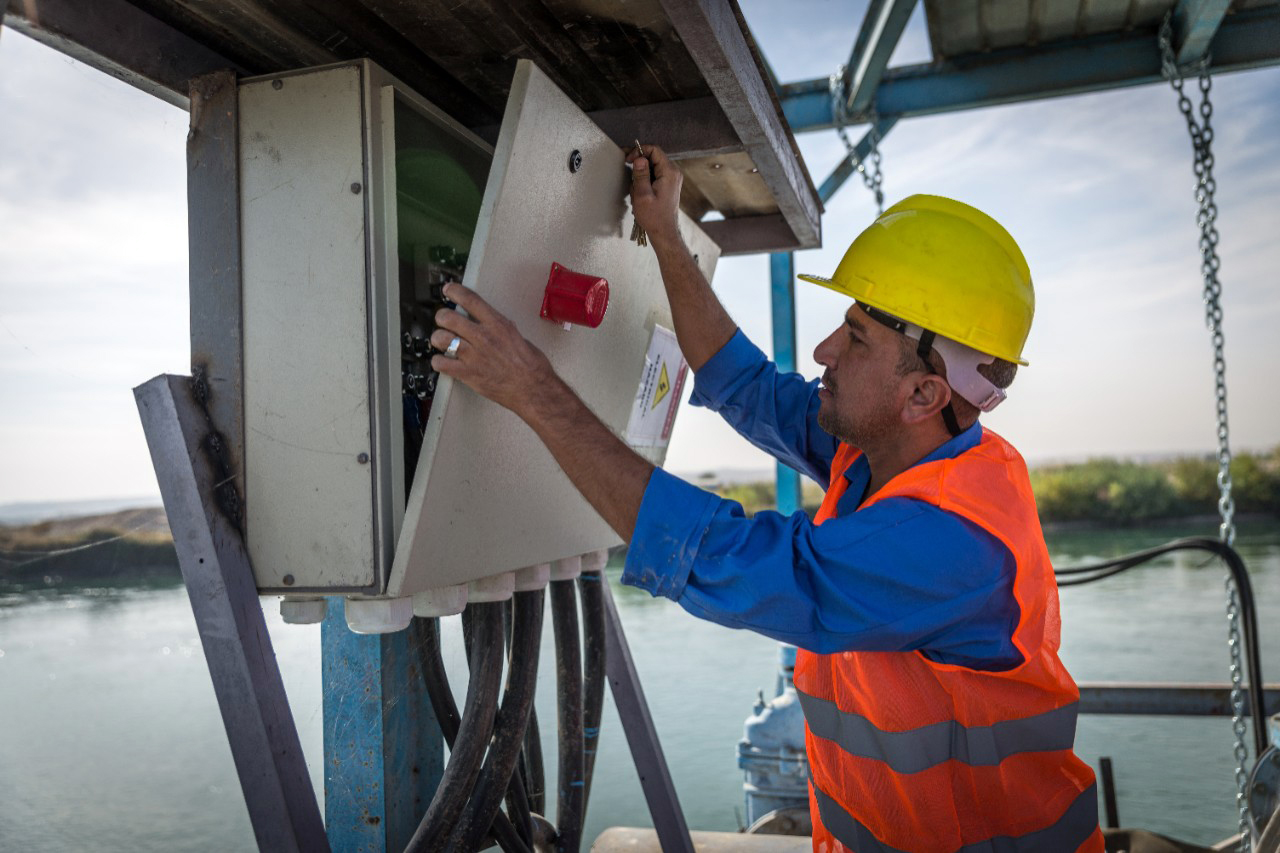Core area “Sustainable economic development, training and employment” Transforming the economy, creating jobs
An employee of the Al-Saheroon sewage treatment plant near Mosul checks lines.
Every year, almost one million young people enter Iraq’s labour market – many of them without any vocational training and prospect of a job that earns them a living income. Germany’s activities are aimed at fostering a socially and environmentally responsible transformation of the economy to create jobs and reduce poverty and inequalities.
Small and medium-sized companies, in particular, that contribute to broadening the economic base and reducing the dependence on oil are receiving support. There is a special focus on empowering women, who have so far hardly participated in Iraq’s economic life.
Improving vocational training, promoting business start-ups
Technical cooperation includes activities that support the Iraqi government in its efforts to align its policies more with economic and labour market data, expand cooperation with chambers and associations to strengthen private businesses, and to improve job placement services.
The German Development Ministry (BMZ) is also promoting dialogue between public entities and the digital industry – a sector that has a lot of development and employment potential. With a view to closing qualification gaps and fostering start-ups, a GIZ project is equipping young people – in particular women – with skills in information technology, data processing and digital transformation. Another aim is to improve cooperation between IT companies, start-ups, start-up centres and universities.
In view of the difficult social situation many communities see an increase in competition for jobs and paid employment. This causes tension between internally displaced persons, returnees from abroad or from other parts of the country and the local population. That is why the BMZ is promoting the expansion of vocational training and upskilling programmes, the establishment or expansion of micro enterprises, the creation of new jobs in small and medium-sized enterprises and temporary work schemes (cash-for-work).
As at: 07/08/2024
